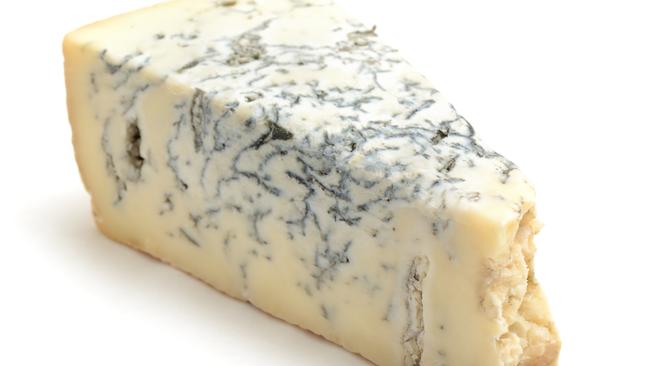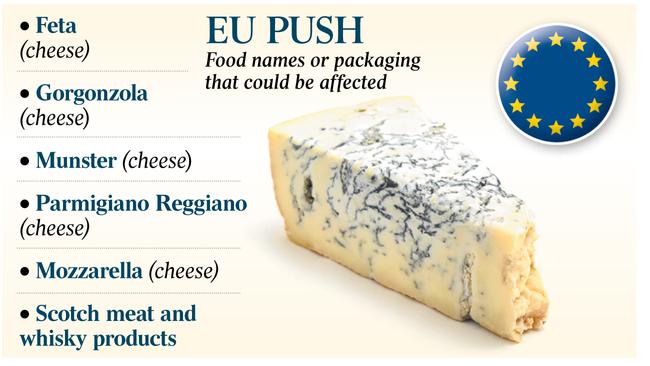Rebrand Aussie goods, EU demands
Feta, Scotch beef and other products may be re-named under restrictions proposed by the EU.

Australian food and drinks companies could be forced to re-name their products and change colours on their packaging under restrictions being proposed by the European Union.
Dairy, meat and alcohol companies are expected to be the hardest hit under the EU’s strict demands, which would target popular cheese, spirits and specialised food products.
The EU — which has imposed similar product term conditions in free-trade agreements with Canada, Japan and South Korea — is pushing the protections as part of its negotiations with the federal government.
The product list, referred to as “geographical indications”, includes protections for localised EU food and drink brands and could force Australian companies to refer to their products as “Australian feta” and avoid using “Scotch whisky”.
The Australian understands that packaging may need to be changed on other products, including popular cheeses such as mozzarella, to avoid conflicts with European brands.
Trade Minister Simon Birmingham said Australia would drive “a very hard bargain” on the EU product demands, which will be publicly released today in a move to avoid FTA negotiation delays.

Senator Birmingham, who will consult with impacted industries over the next three months, said the government was seeking to “achieve an overall agreement that delivers more opportunity for Australian farmers and businesses”.
“Ultimately, we will only do this deal if overall it is in Australia’s interests to do so,” he said.
In previous trade deals the EU indicated it was open to including “grandfathering arrangements”, which would mean the name protections may not apply to existing products. With the EU currently Australia’s second-largest trading partner, third-largest export destination and second-largest services export market, Senator Birmingham said it was crucial to secure an agreement that benefited Australian businesses.
“We want to hear directly from Australian farmers and businesses so that we can fully represent them in our continuing negotiations with the EU,” he said. “There are enormous opportunities for Australian farmers and businesses if we can improve their access to markets across the EU. The EU boasts more than 500 million consumers and, even with existing trade restrictions, it is already Australia’s third-largest export market.
“Whilst we understand the importance the EU places on geographical indications, our priority is ensuring our farmers and businesses can get better market access and be more competitive in the EU.”
With the EU imposing higher tariffs than Australia on industrial goods — with exports facing tariffs of up to 12 per cent on resources, 10 per cent on wood and paper, and 7 per cent on chemicals, the government is seeking to use the FTA to eliminate all EU tariffs on industrial goods.
In return, Australia plans to cut tariffs on imports from the EU. According to the Department of Foreign Affairs and Trade, under current arrangements, Australian agricultural exports to the EU, including beef, sheep meat, rice, cheese and sugar are “significantly constrained by EU tariff quotas”.
“High and seasonal tariffs impair trade in other agricultural commodities such as horticulture,” DFAT said. “We will aim for full tariff liberalisation of agriculture in the FTA, while noting that negotiations on some agricultural products will be particularly difficult.”
The FTA would also aim to “guarantee access for Australian services exporters to the EU, as well as create new opportunities in sectors of key commercial interest” including education, financial and professional services.
Senator Birmingham said the EU FTA consultation process would “help us better understand the views of Australian industry, which will assist us in our ongoing discussions with the EU on why their requested protection of certain terms will not be acceptable in some cases”.
Many of the products on the EU geographical indications list are not used by Australian producers. Most of the 236 GI names are spirit drink labels unfamiliar to Australian products.




To join the conversation, please log in. Don't have an account? Register
Join the conversation, you are commenting as Logout